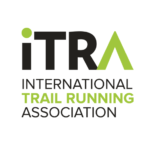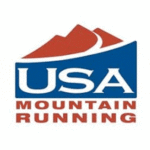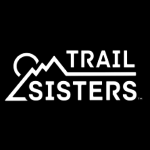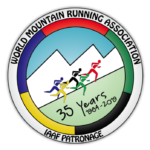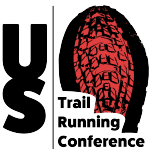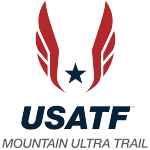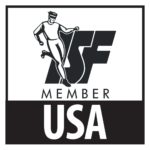
There is a growing market for nutrition supplements in trail running, which brings an increased need for understanding how to most effectively (and safely) use these products. A few of the most common dietary supplements used by trail runners include protein powders, collagen, caffeine pills, beetroot powder/juice, pre-workout blends, and BCAA powders.
These products are used with the goals of speeding up recovery after workouts, to gain an extra edge on race day, or for other training/racing specific purposes.* Although some of these products do have sufficient science to support their usage in certain situations, there are many products on the market that make claims not backed by science, or they do not contain the ingredients listed on their product label, or are potentially dangerous for health.
Should you choose to use nutrition supplements in your training/racing, you should be aware of their specific uses, risks, and how to navigate the wide market of supplements to find out what is most safe and effective for you.
What’s The Risk?
The supplement industry in the United States has been tainted by companies who have historically produced supplements with ingredients not listed on their labels, or who aim to use cheaper “blends” in their products that require no label testing for ingredients. Furthermore, elite athletes should be wary when using supplements as companies are not required to be free of substances on the World Anti Doping Agency (WADA) Prohibited List and it’s not uncommon for these products to be tainted with banned substances. This could lead to athletes serving bans from competition should these substances be present in a sample during drug testing. Lastly, pregnant women also need to be cautious about using supplements, as there will likely be no warning on product labels for potentially dangerous ingredients that could impact the mother or child.
[PRO TIP: Learn more about drug testing in MUT running in my five-part “clean sport” article series.]
Are Third Party Label Claims the Solution?
Third party certifications have become one solution for athletes seeking to gain the benefits of supplements without incurring the risks of tainted ingredients. Third party certifications such as NSF Certified for Sport, Consumer Labs, Informed Choice, USP Verified Mark, among several others, hold companies to a standard for label claim testing and/or specific testing for substances on the WADA Prohibited List. Products with these certifications on their labels offer athletes a simple way to choose supplements that are what they say they are, and have less risk of being tainted with harmful ingredients.
One of the first nutrition/supplement companies serving the trail running community to seek out third party certifications is Salt Lake City, UT-based company, Gnarly Sports Nutrition, who has recently been approved with the NSF Certified for Sport label on all of its products.
I spoke with Dr. Shannon O’Grady, chief product and operating officer at Gnarly Sports Nutrition and Doctorate of Nutritional Physiology, about Gnarly’s decision to obtain the NSF Certified For Sport designation, what other types of product certification exist, benefits of supplements and who they’re for, how to safely navigate the wide world of supplements, and tips for reading labels to cut through “marketing lingo” and distinguish high quality supplements.

Dr. Lisa Boshard. Photo credit: Lisa Boshard.
[TAYTE POLLMANN] To someone completely new to third party label claim testing, could you describe the purpose of these certifications in the supplement industry? What types of certifications exist that consumers should be aware of?
[SHANNON O’GRADY] Many people think that the FDA doesn’t regulate supplements and to some extent there is some truth there, but the real issue is that the FDA doesn’t have the workforce to regulate all of the supplement companies that exist in the US. The FDA does have regulations that supplement manufacturers and companies are supposed to abide by. The sad truth is that many companies don’t do diligence and test their label claims. There’s no way for a consumer to know what’s in these products and that’s where third party certifications come into play. The certifications I see most frequently are USP and NSF for label claims and contaminants testing, and then I see Informed Choice and NSF Certified for Sport for the WADA banned substance testing.
[TAYTE] Gnarly Sports Nutrition has earned the NSF Certified For Sport designation. Why did you choose to pursue this third party certification?
[SHANNON] We have gone by the tagline “clean sport nutrition” and felt the need to obtain NSF Certified for Sport as a way to back this up with a certification that consumers can trust. The reason why we went with NSF is that we liked that it was both the label claim and contaminant testing and the sport specific testing. If you’re a professional or recreational athlete, you don’t want contaminated substances in your product. You want to make sure that you’re getting the product that you’re paying for and that it’s safe. All NSF Certified for Sport products have to go through a toxicology and safety screening by NSF scientists and then are tested for all substances on the WADA list of banned substances.
[TAYTE] Could you give us a brief rundown of what the process of working with NSF has been like as a company? How long does the testing process take?
[SHANNON] NSF looks at the formula to make sure the product is safe or to make sure the ingredients don’t exceed safety standards. The toxicology team approves for safety and asks for paperwork on all the ingredients in the product and approves that all the ingredients are what you say they are. NSF then reviews the label and asks for samples for the content certifications. The whole process takes anywhere from six to eight weeks and is done annually. They test for all label claims, a full panel of microbes and a full panel of heavy metals and pesticides. Once your product has passed that, if you are pursuing NSF Certification for Sport, this testing is done on a lot per lot basis testing. All lots are tested which makes for more rigorous testing for all substances on the WADA Prohibited List. Athletes can then go on the NSF website and search by lot number just to double check their products.
[TAYTE] What resources would you suggest for someone looking to better understand third party certifications and the risks of tainted supplements on the market?
[SHANNON] The NSF site has many great resources as well as the FDA, as far as what to look for and how to educate yourself on reading label claims. Consumer Lab as well as Consumer Reports have good information on how to choose supplements. In general, seek out resources that are behind educating consumers and not just selling products.

Photo credit: Tim Behuniak.
[TAYTE] What supplements (if any) should trail runners be using? There are so many supplements on the market these days, how do trail runners new to the supplement world avoid marketing hypes and find effective, safe supplements?
[SHANNON] Supplements can encompass everything from whey protein, beetroot powder, Korean ginseng, horny goat weed, etc. Supplements that athletes should consider are supplements with a fair amount of science backing them. For example, the need for protein in our diets as endurance athletes is not questioned. Most of us need to supplement with Vitamin D and there is a fair amount of research showing how beetroot is high in nitrates and can help with blood flow.*
The question is: are there real food replacements for these supplements? In many cases the answer is yes, so you might not need to be taking supplements. However, we all know that sometimes life gets in the way of our best nutritional intentions and that’s where supplements come in. Supplements can be a quick and easy way to meet our nutritional needs and supplement our normal diet. Supplements are supposed to be supplemental. In most cases, people are not getting enough vitamins or protein because of lifestyle factors or training, which affects performance, recovery and eventually health.
There are plenty of products out there that rely on marking tricks and buzzwords to sell products that don’t have science backing their claims. A good way to cut through that is to look at what the supplement is actually claiming to do. There are very few supplements that will have “earth-shattering” effects on your performance, recovery, and health.* Supplements will be a small part of the equation to your trail running success that also entails how much sleep you’re getting, and whether you’re getting enough nutrition as a whole. If you ever see a supplement company making outrageous claims, that’s a pretty good indication that it’s just following a marketing tactic, not science.
[TAYTE] Increased protein for endurance athletes is a trend that I’m seeing many certified nutritionists supporting. What are your thoughts on protein supplements for trail runners?
[SHANNON] There’s currently an increased emphasis on protein for endurance athletes. For a long time there was a gap between protein recommendations for endurance versus strength athletes. What we’re seeing is that endurance athletes who do consume adequate amounts of protein do recover better and this leads to better adaptations to endurance exercise. There are more mitochondria in muscles and increased energy production and there isn’t this “bulking” effect that many assume happens when you increase protein in a diet. Protein powders can be a great way to do this is you find life gets in the way of consuming whole food proteins.*
[TAYTE] What are a few common mistakes you see runners making when using supplements?
[SHANNON] Don’t try too many products at once. You may not be aware of what product is doing what and if you have a problem with a particular product you won’t know which one is contributing to that problem. Much like anything, slowly add things on and see how your body responds in a positive or negative way and practice with different kinds of supplements in your training so you’ll understand how they affect your body. We’ve all heard the old adage “Don’t try anything new on race day.” Many people also forget that this applies to nutrition. Understand what kind of outcome you’re looking for and make sure your supplements are helping you get closer to that outcome.
[TAYTE] For a consumer shopping for supplements, what are a few tips to help steer us in the direction of finding the best quality supplements?
[SHANNON] Even if your product is not NSF certified there are things that can point you in the right direction to products of higher quality. One thing we see often (particularly with green supplements, pre workouts and new mushroom powders), are “proprietary blends.” Look out for fancy names such as “super alkalizing detox blend,” which often contain fifty or more ingredients and only one ingredient amount for the entire blend.
You don’t really know how much each ingredient contributes to the total amount, meaning you don’t know what you’re consuming. The company could be putting in a higher amount of the cheaper ingredients and not so much of the more expensive ingredients or the ingredients that you as a consumer are interested in. Also, because the ingredients are in a blend, the company is not required by the FDA to test for label claims. This is potentially a sneaky way to make a cheaper product and to get around testing requirements.
Be on the lookout for outlandish claims. Watch out for words such as “detox,” “hormone balancing,” or words that don’t have much research supporting them. Sometimes companies will also create their own “badges” on their product labels. One example of this is “GMP Certified” badges, which stands for “Good Manufacturing Practices.” GMP is required by the FDA for supplement companies to follow, but there is no actual GMP certification badge. That is a badge that the company has made up and put on the product. Do your homework beforehand and familiarize yourself with third party certifications, so you know which ones you’re looking for when you purchase new supplements.

Dr. Lisa Boshard. Photo credit: Lisa Boshard.
[TAYTE] NSF certification is not a one-time event, but involves regular on-site inspections of manufacturing facilities and regular re-testing of products to ensure that they continue to meet the same high standards required to maintain certification over time. What happens when companies fail to meet these standards?
[SHANNON] For the label claim/contaminant testing, testing is done annually. If a product fails and the failure doesn’t present a major safety concern, then the company files a CAPA (corrective and preventive action plan) to address the failure. This could look like changing a label claim to meet test results or maybe adding more of a particular ingredient to meet test results. NSF then reviews the CAPA and if they approve the plan they will retest the product. If it passes, you’re good to go, if it fails then the product will need to be re-evaluated by NSF. In the case of a failure that is a safety concern, NSF requires that the brand recall the product if it’s been distributed.
For the sport testing, a product cannot be sold with the NSF for sport mark until that lot passes testing. If it failed, there’s really no way to come back from that for that particular lot.
[TAYTE] Gnarly Sports Nutrition is also pushing boundaries in terms of sustainable packaging. Would you like to share what actions Gnarly has made to become a more eco-minded company?
[SHANNON] The largest change for us as a company in recent years has been moving away from plastic packaging. We started packaging our products in steel, which is recycled at a rate of 70% as opposed to plastic at a bismal 8%. There aren’t many companies making that step (and it’s been a scary step for us to make) but it is something we feel strongly about. We hope other brands in the nutrition space will feel the same and make this shift to support the environment.
For more information about why third party certification matters, you can also check out “Why Supplement Quality Matters – Learn why evaluating supplement quality, safety and efficacy is a must“ by leading professional nutritional supplement distributor Emerson Ecologics. Emerson Ecologics has been a leader in the nutritional supplement industry for over 40 years.
* These statements have not been evaluated by the Food and Drug Administration. These products are not intended to diagnose, treat, cure or prevent any disease.



